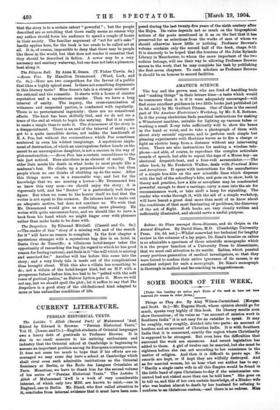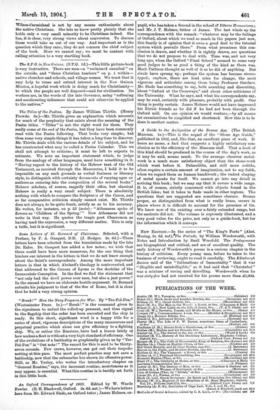Things as They Are. By Amy Wilson-Carmichael. (Morgan and Scott.
6s.)—Mr. Eugene Stock, whose opinion should go for much, speaks very highly of this book. Its literary merits soon show themselves ; of its value as "an account of mission work in Southern India" it is not easy for an outsider to speak. It may be roughly, very roughly, divided into two parts : an account of heathen and an account of Christian India. It is with Southern India that it is concerned, exactly the region where Christianity is supposed to be strongest. But even here the difficulties that surround the work are enormous. And recent legislation has added to them. A girl of twelve can be married, but she must be eighteen before she can act according to her conscience in the matter of religion. And then it is difficult to prove age. No records are kept, or if kept they are wilfully destroyed. And as for married women, let us hear what our author has to say : "Hardly a single caste wife in all this Empire would be found in the little band of open Christians to-day if the missionaries con- cerned had not risked more than can be told here." She goes on to tell us, and this of her own certain knowledge, of a Hindoo wife who was beaten almcst to death by her husband for refusing to conform to an idolatrous custom,—and there is no redress. Miss
Wilson-Carmichael is not by any means enthusiastic about the native Christians. She lets us know pretty plainly that she holds only a very small minority to be Christians indeed. She has, it is clear, very strong views about conversion. To discuss these would take us out of our way. And important as is the question which they raise, they do not concern the chief subject of the book. More we cannot say ; we must be content with calling attention to a very startling book.











































 Previous page
Previous page